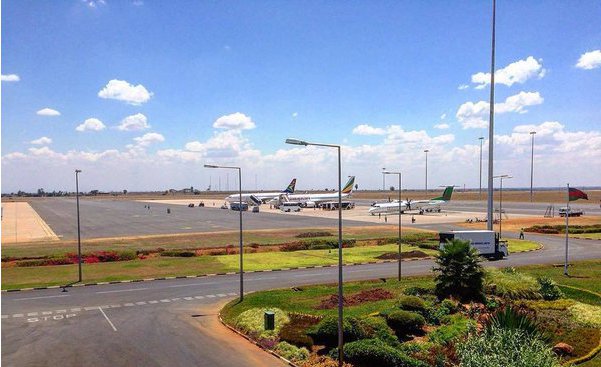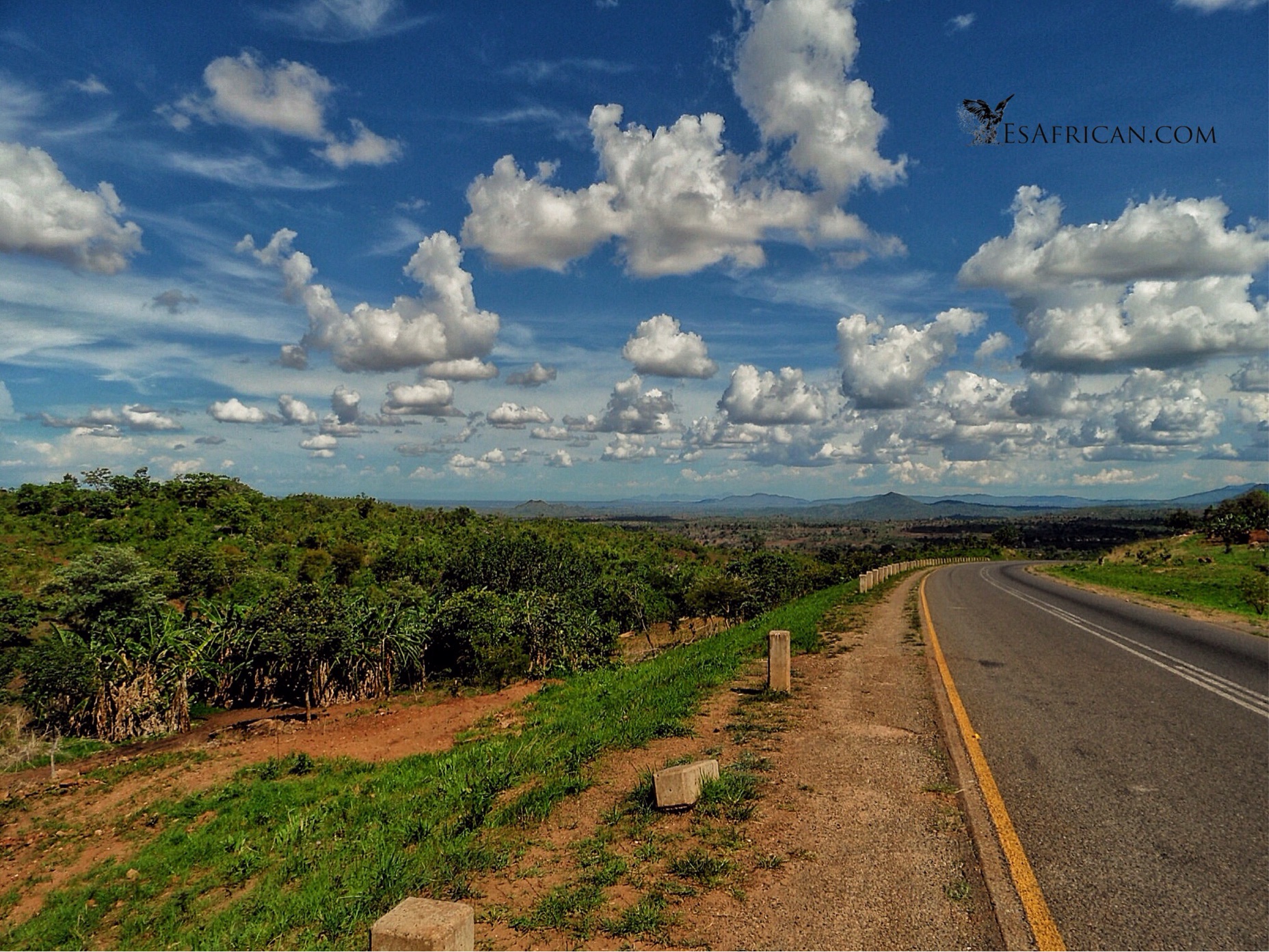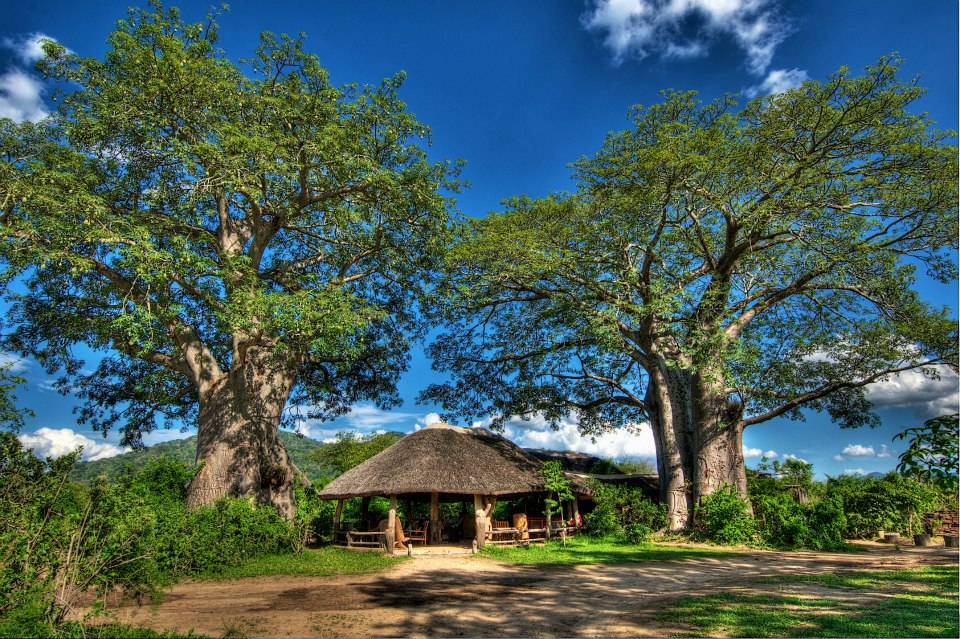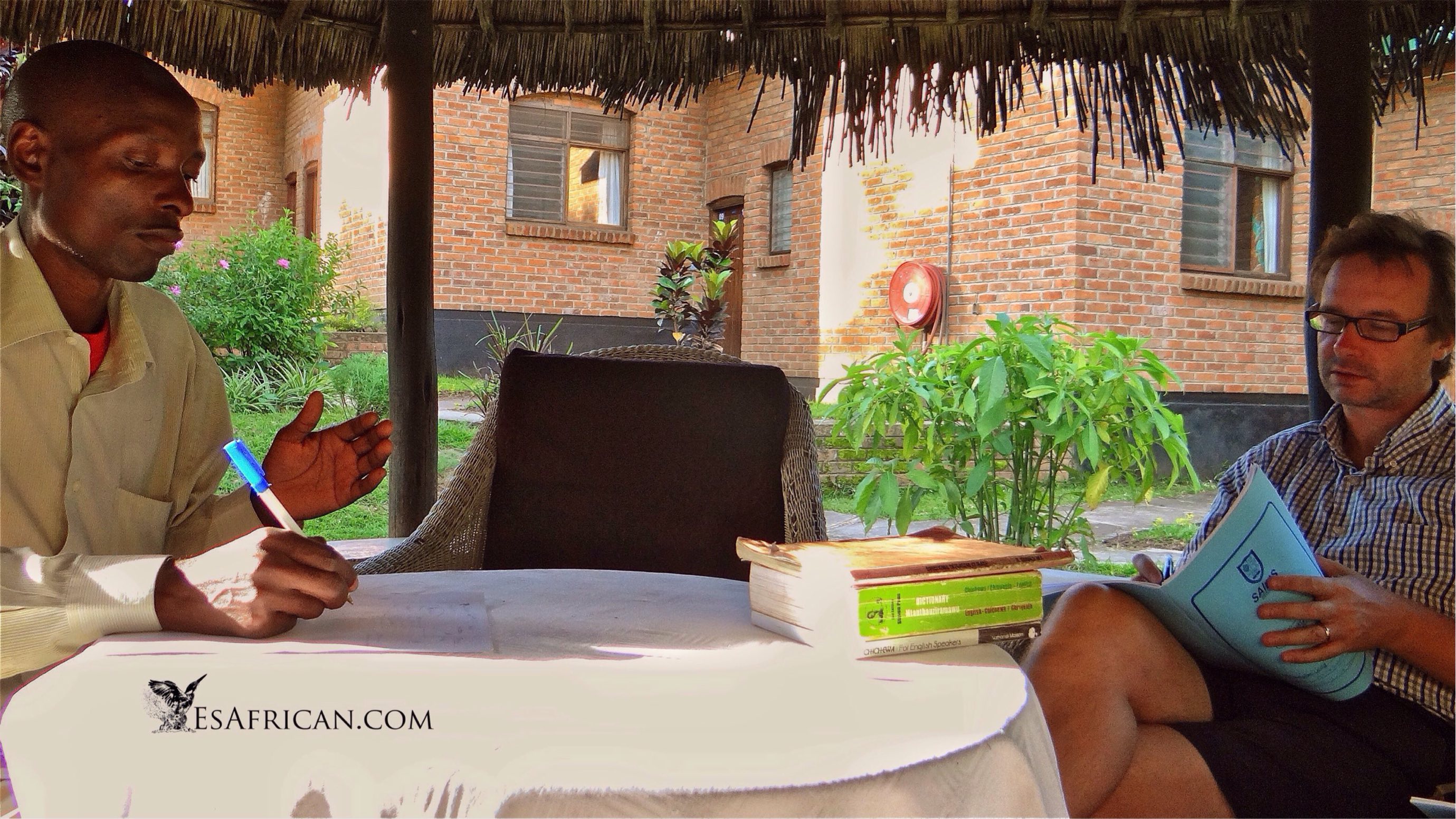The Cape Maclear Road
When we were on our way to Cape Maclear we observed something which appears to contradict economic theory.
Cape Maclear is on Lake Malawi. It is at the end of a large peninsula towards the southern end of the Lake. It is also the place where there was the first settlement by Scottish missionaries in Malawi. The first missionaries after David Livingstone chose Cape Maclear as it has a natural harbour caused by the shape of the islands at the end of the peninsula. They had brought a ‘self assembly’ steam boat at Millwall in London and assembled this boat at the mouth of the Zambezi River on the Indian Ocean after being dropped off by a larger ship.
They steamed up the Zambezi and then up the Shire River until they reached the waterfalls where they had to unassemble the boat and hire a large number of people to help them carry the boat a long way up river. Again they assembled it and proceeded up the Upper Shire through Lake Malombe and then into what is now Lake Malawi (previously named Lake Nyasa by Livingstone).
Now Cape Maclear is ‘backpacker-central’ in Malawi and most of those traveling through probably know nothing of it’s history. As well as seeing the start of modern medicine and education in Malawi Cape Maclear has had a varied history. It was once a playground for expats during colonial time and there was even a direct flight from London to Cape Maclear in the 1950’s – in a flying boat. Now there are no direct flights between the UK and Malawi at all. The BBC team who were doing a documentary on David Livingstone were gobsmacked when I told them of the London-Cape Maclear flying boat service.
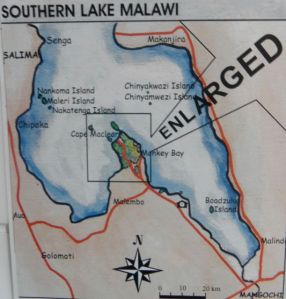 These days getting to Cape Maclear involves an approximately 10 mile journey along a lonely dirt road through the peninsula after turning off the main road near Monkey Bay. You are surrounded by hills, rocks and vegetation on all sides and have the feeling that you are far from human settlement. The road itself is a bit rough. It is not that there are huge holes or deep gulleys – instead there are small regular ruts lying at right angles to your direction of travel. So your car, you and your engine and being rattled.
These days getting to Cape Maclear involves an approximately 10 mile journey along a lonely dirt road through the peninsula after turning off the main road near Monkey Bay. You are surrounded by hills, rocks and vegetation on all sides and have the feeling that you are far from human settlement. The road itself is a bit rough. It is not that there are huge holes or deep gulleys – instead there are small regular ruts lying at right angles to your direction of travel. So your car, you and your engine and being rattled.
While driving along in the middle of this we passed two young guys who enthusiastically waved us down to stop. I could see a bucket and (wet?) earth with which they seemed to be fixing the road. We quickly concluded that they were either fixing the road on their own initiative and hoping to be paid by the occasional grateful motorist – it is not an area with heavy traffic… – or they were pretending to fix the road and were tricking motorists into coughing up some cash.
At first we were suspicious but thought that they were probably genuine. It looked genuine.
On the way back a few days later we met the same people and this time were far more convinced that they really were fixing the road. We made a small contribution – but they were very happy. I asked if all / most / some / few drivers contribute to their work and they seemed to be saying that almost all drivers contribute something.
I regret not taking a photograph of them – we were in a rush to get on. All I have is a photo of some of the tops of the hills in that area.
I thought it was interesting because in economics work that is done which benefits anyone around and which cannot be restricted only to those who pay – is not supposed to work. The classic example is the lighthouse. The lighthouse cannot charge ships for using it’s service as everyone who is at sea can see the lighthouse and there is no way that the lighthouse keepers can compel the ships to pay for the service. Therefore, the theory goes that the shipping companies will not pay for the lighthouse service, because they can all be ‘free-riders’ on someone else’s work. Therefore the lighthouse has to be paid for by the government and cannot survive in the private sector.
So, it seems as those these enterprising road-fixers have not read their economic textbooks. They should have been pessimistic about the prospects of being paid. Instead they seemed to be doing quite well, if their mood and enthusiasm was anything to go by.
So how come this private business works if economic theory says that it should not? Well, firstly there has to be some degree of trust – the motorists have to trust that these guys are genuine – in some societies I am sure that there would be some doubt about this. Certainly I was a bit suspicious at first. Second there has to be some goodwill or some feeling that one would like to contribute a fair price to a service that one is receiving – even though the motorist is under no compulsion to do so. Perhaps the motorist feels some social or moral obligation or perhaps because the voluntary donation is small compared with the means of anyone who can afford to drive a car means that there is a desire to contribute.




